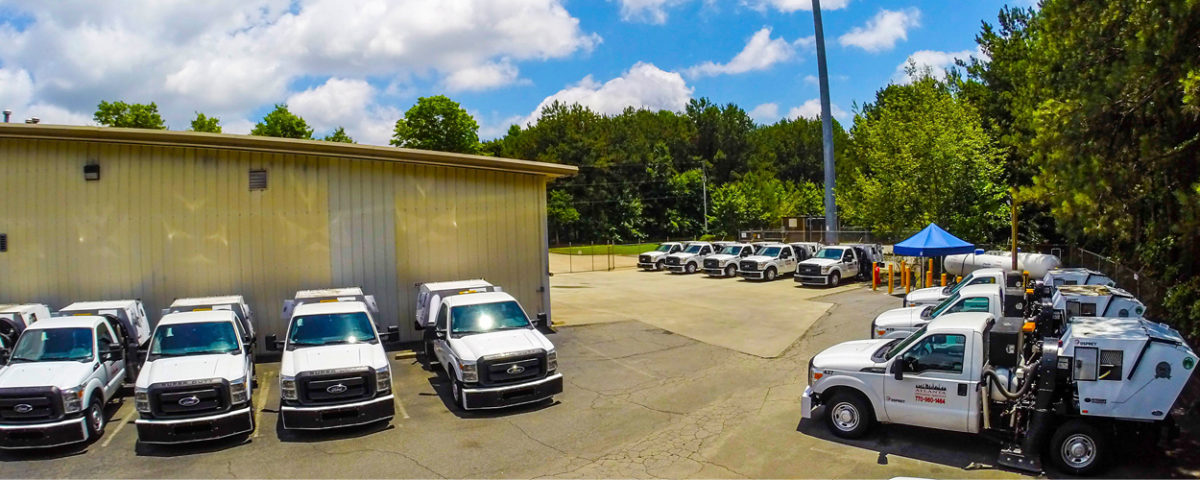- Call us at 1-800-448-9364 or email us at [email protected] | Request Information »
Fleet Optimization: Alternative Strategies before You Buy

NiteHawk Debuts the Osprey II at NPE 2017
May 11, 2017
Tax Section 179 for the 2017 Tax Year
October 2, 2017At NiteHawk, we’ve been building the highest quality sweepers on the market for over twenty years. We’re driven beyond manufacturing goals. For us, the real joy of our work comes from helping small businesses grow and succeed. It’s important to us that any customer looking to purchase a new sweeper does so at the right time for their business.
If you own a sweeper company, one of the biggest questions you probably face is this: do I have the right size fleet, and how do I know when to expand?
Optimizing your fleet size, or “rightsizing,” is crucial to running a successful operation. Besides helping you build and maintain an efficient sweeper fleet, rightsizing will help you lower maintenance costs, establish consistent levels of usage, and ensure effective delivery of services to your clients.
The US Department of Energy offers a helpful guide [1] for the optimal operation of vehicle fleets. These seven questions come from an article specifically on fuel efficiency, but thinking about these issues can help you improve efficiency for your overall operation:
- What is the ideal number of vehicles needed to meet your fleet’s needs?
- What job does each vehicle perform and how important is it?
- Are there any vehicles that can be cut because they are cost prohibitive to use or no longer fulfill a defendable purpose?
- Are your vehicles being optimized for type, class, and size?
- Are there vehicles that are either never or rarely utilized?
- Can you replace certain vehicles with lighter, more fuel-efficient options?
- Are options available, such as sharing vehicles between agencies or short-term rentals?
Before you decide to add a new sweeper to your fleet, consider if your existing vehicles are utilized at optimal levels of efficiency. If you’re experiencing increased client demand (and we hope you are!) think about ways your current fleet’s performance can be improved and expanded:
- Routing: Some of your sweepers might be able to produce more work at lower costs by making changes to their routes. Critically examining routes is especially important as you add clients, because new locations may open up alternate route possibilities that can make a single vehicle more efficient. Talk to your drivers about the routes they currently take, and use their knowledge of the area to assess the best way to cover all clients.
- In-House Maintenance and Repairs: You may be wasting money by outsourcing repairs and maintenance that could be done in-house. If your fleet is large enough, investing in your own tools and maintenance training will save you time and money. Your trucks will get off the blocks and back on the road faster. You’ll also have the benefit of knowing exact costs for parts and labor, which may be marked up by third party mechanics.
- Driver Training: Your trucks might be incurring more costs because employees are not driving them properly. Research shows that especially for medium and heavy-duty vehicles, driving above 55 mph can decrease fuel efficiency by 15%. Excessive idling is also a problem. An idle engine runs at a lower temperature; this not only burns fuel less efficiently, but it leaves residue on plugs and cylinders which causes even more inefficiency over time.[2] Establishing and reinforcing driver policies related to speeding and idling will save on fuel in the short run and make your vehicles last longer over time.
Before making a significant investment, make sure that your current fleet is performing at the highest level possible. We are excited to help our clients grow their businesses the right way, and we are confident that with enough growth adding sweepers to your fleet will be the right move.
[1] https://www.afdc.energy.gov/conserve/rightsizing.html
[2] Azuga Fleet Report. 2016. Reducing Fuel Costs with Fleet Tracking Solutions. Available at https://www.azuga.com/.
rephrase this into one question, ie: Should I expand my fleet?

